Microbiome
Resource Center
/ Most Recent /

Postbiotics – Capturing Microbial Benefits Without Live Microbes
The Leap to Postbiotics – Born of Necessity and Insight Early 2020. COVID-19 brought the world to a standstill, and with
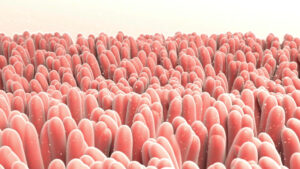
From Probiotics to Fecal Transplant – A Paradigm Shift (Part 1)
Early Days of Probiotics: Promise and Marketing Hype Modern microbiome science emerged in the 2000s with the realization that trillions of

Are Cannabinoids the Key to a Comfortable, Healthy GI Tract?
The statements mentioned in this content have not been evaluated by the FDA, and are not intended to prevent, diagnose, or

Microbiota & Seasonal Allergies
First introduced in 1989, the “hygiene hypothesis” proposed that exposure to specific microbes, perhaps during crucial windows of development, educates the

Probiotics Reduce Fever Duration in Children with Upper Respiratory Tract Infection
This is the first trial showing the efficacy of this probiotic mixture in reducing fever duration in children with URTIs. Fever management can be intimidating for parents, and a safe therapy like probiotics benefits the pediatric patient and their caregiver. Probiotics may also prevent the incidence of and reduce other URTI symptoms.

Alcohol and Gut Health: Clinical Insights Using the 5R Approach for Supporting Patients’ Digestive Well-Being
As a medical education specialist at a functional medicine laboratory, I speak with clinicians daily about their patient’s stool test results.
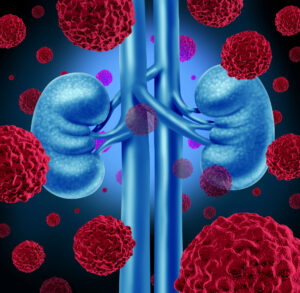
Probiotic Improves Health of Kidney Cancer Patients
The gut microbiome—the trillions of bacteria and other microorganisms that live in our intestines—plays an extensive role in human health and

Can a Father’s Gut Health Affect His Offspring?
Our gut microbiota is made up of the millions of microscopic creatures that inhabit our gastrointestinal tract. It is responsible for

Probiotic Metabolite May Help Treat IBS
Science is only beginning to understand the role that the gut microbiome—the collection of bacteria and other microbes that live in

Cranberry Extract May Reduce Risk of Chronic Disease
A study published in the journal npj Biofilms and Microbes shows that short-term supplementation with cranberry extract can improve gut health and may help protect against disease.

Supplement Combo Helps Treat Schizophrenia
Schizophrenia is one of the most common severe mental illnesses, affecting some 24 million people—about one in every 300—worldwide. Symptoms range

Study Uncovers Link Between Gut Health and Parkinson’s Disease
Parkinson’s disease is the second most common neurodegenerative disease after Alzheimer’s, with more than 90,000 new cases diagnosed in the U.S.

The Ever-Evolving Microbiome: Part Two
Crafting a personalized probiotic protocol that changes across the lifespan, to meet your patients’ needs at every age and stage of life.

Effective Ways to Support Teen Gut Health
Teenagers experience rapid physical and mental changes. The microbiota and gut-brain axis play a crucial role in their health and wellbeing. However, diet, stress, and poor sleep quality may disrupt the balance in their gut microbiota. These easy, practical tips can help teens adopt a healthier diet and lifestyle to support optimal gut health.

15+ Foods to Nourish A Child’s Gut
The gut microbiome plays a vital role in children’s health, often influencing their physical and mental health later in life. Microbiome

The Ever-Evolving Microbiome—Ages and Stages
Research highlights specific patterns and transition points at various ages and stages of life, as well as significant impacts those changes have on long-term wellness—so a personalized gut-health protocol that considers evolving needs is crucial. Five primary ages and stages, with physiological, environmental and other factors that influence microbiome balance.
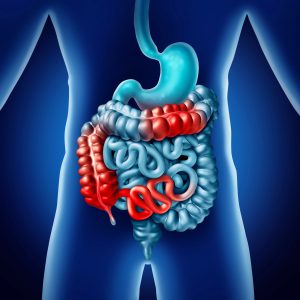
Crohn’s- A Functional Medicine Approach (Case Review)
Today I want to share an article written by Ron Grisanti from Functional Medicine University which is a case review of treating a patient with Crohn’s with

GI-MAP: What You Need to Know
The GI-MAP (Microbial Assay Plus)® by Diagnostic Solutions Laboratory is a comprehensive stool test that uses quantitative polymerase chain reaction (qPCR) technology to assess gut health. The GI-MAP test
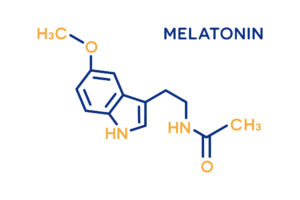
Melatonin May Aggravate Bowel Inflammation
A study published in Microorganisms shows that the popular sleep aid can worsen inflammation of the intestine and impair the action of gut microbiota.
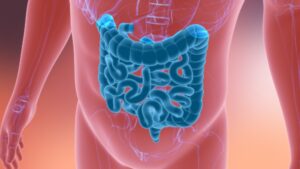
Bugs and Barrier Function
Intestinal epithelial barrier integrity has a great deal to do with how we feel: both physically and mentally. The concept is a relatively simple one, although the

Low FODMAPs: The New Gluten Free?
As patients without diagnosed gluten allergies continue to benefit from a gluten-free diet, researchers, medical professionals, and nutritionists alike are now turning to a related, but more

Does Akkermansia Hold the Key To Metabolic Health?
Our gut flora has a role in many internal processes, including regulating our immune system, influencing our mood and cognitive function through the gut-brain axis, and influencing

Gut Microbes Help with Early Detection of Gestational Diabetes
Gestational diabetes mellitus (GDM), a condition that affects approximately 10% of pregnancies worldwide, occurs when women without diabetes develop glucose intolerance during pregnancy. Typically detected in the

Link Between Gut Bacteria, Estradiol, and Depression Discovered
A potential new cause of depression in premenopausal women has been uncovered. According to a study in the journal Cell Metabolism, women struggling with depression during their
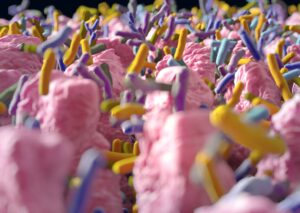
Spring Clean Your Microbiota: Trillions of Tiny Lives That Influence Your Health
Emerging research suggests that the microbiota influences many aspects of wellbeing, far beyond digestive and immune health. Nurturing these trillions of tiny lives requires a holistic approach. Here’s how to help patients get started.
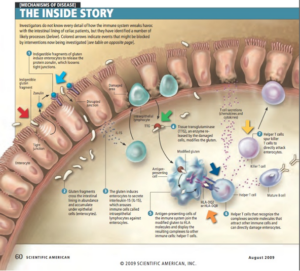
Zonulin: A Key to Understanding Leaky Gut & Certain Diseases
Over the past 15 years, a growing body of published research supports the hypothesis that the protein zonulin is a key modulator of the tight junctions between
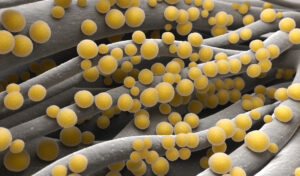
Bacillus Probiotic Helps Eliminate Staph in the Gut
One particular probiotic strain found in supplements — Bacillus subtilis — was shown to dramatically reduce Staphylococcus aureus (S. aureus) in the gut without killing off friendly

Research-Backed Ingredients to Support Mood Balance
Love Your Happy Place The human microbiota consists of trillions of microorganisms, such as bacteria, viruses, fungi, and others. The vast majority, around 70%, of these microbes

